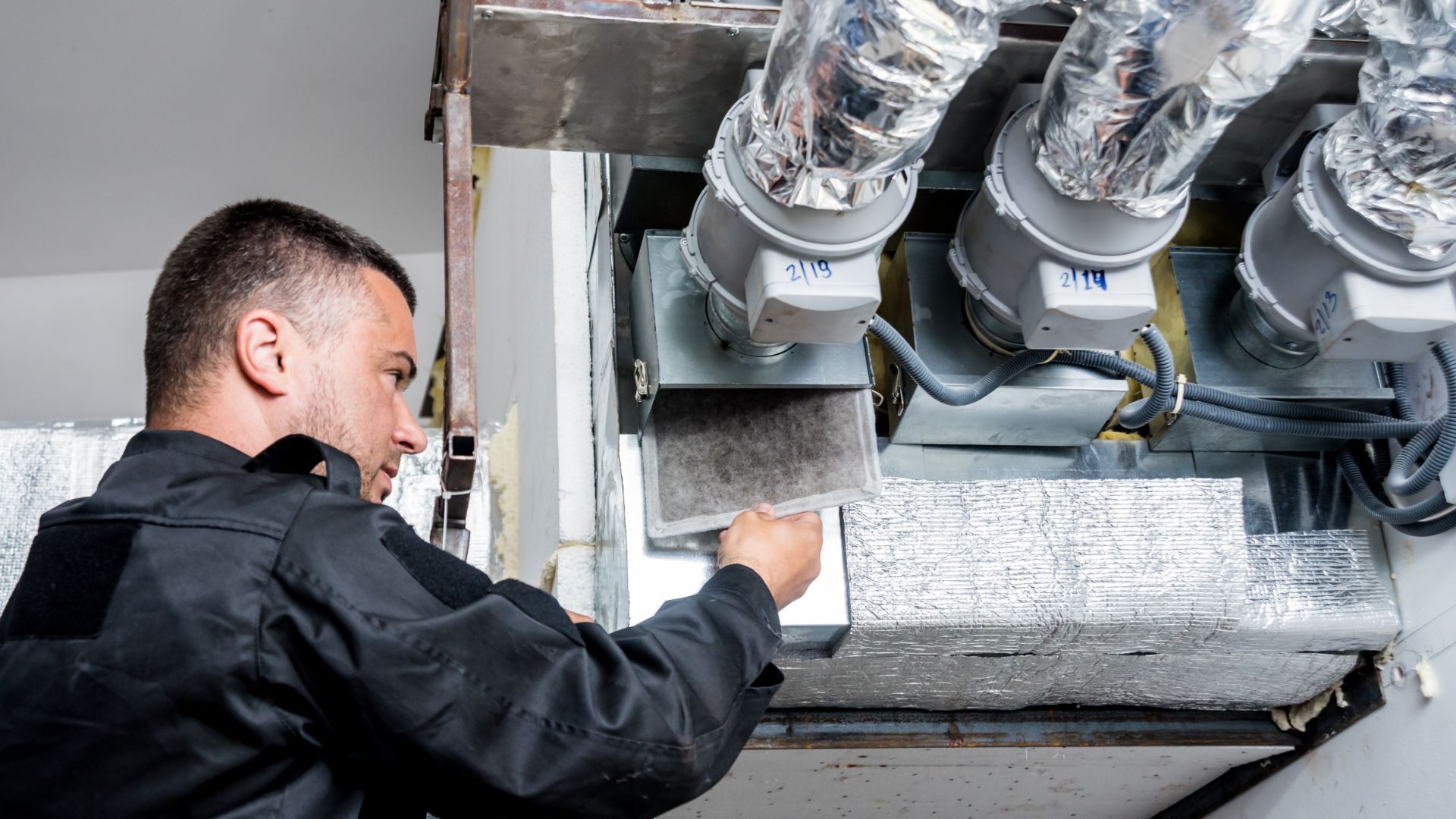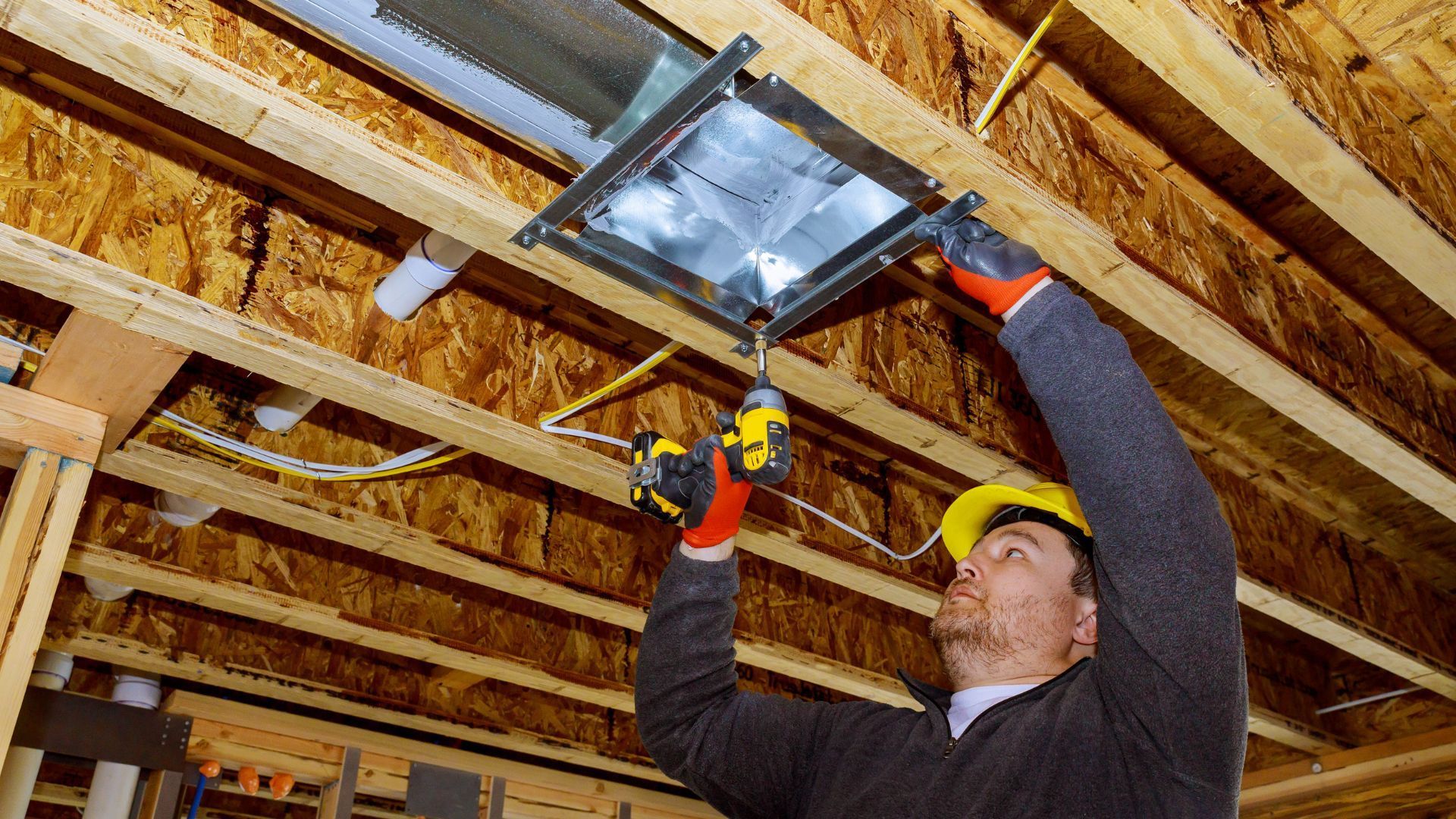Working Hours: Monday - Friday 08:00 AM - 04:30 PM
Choosing Between AC And Split AC

As the sweltering heat of summer approaches, the importance of a reliable cooling system cannot be overstated. The choice between traditional window air conditioners (AC) and split air conditioners (Split AC) can be a challenging one. In this comprehensive guide, we will delve into the nuances of this decision, helping you make an informed choice for your cooling needs.
Choosing Between AC And Split AC
When it comes to cooling your home or office, the decision to choose between an AC and a Split AC can be perplexing. Let's break down this dilemma into a series of factors to consider.
Cost Efficiency
One of the primary factors that influence the choice between an AC and a Split AC is cost efficiency. AC units are generally more affordable upfront. However, Split ACs tend to be more energy-efficient, leading to lower electricity bills in the long run.
Installation
AC units are relatively easy to install and can often be done without professional help. In contrast, Split ACs require professional installation, which may incur additional costs. However, Split ACs offer more flexibility in terms of placement.
Cooling Capacity
The cooling capacity of an AC is suitable for small to medium-sized rooms. If you have a larger space, a Split AC is a better choice as it can cool more extensive areas effectively.
Aesthetics
Split ACs are known for their sleek and modern designs, making them a preferred choice for those who value aesthetics. On the other hand, AC units are bulkier and may obstruct your window view.
Noise Level
AC units tend to be noisier compared to Split ACs. If a quiet environment is essential to you, consider investing in a Split AC for a more peaceful cooling experience.
Maintenance
Maintenance is a critical aspect to consider. AC units are easier to clean and maintain, making them a hassle-free choice. Split ACs, while efficient, may require more attention and professional servicing.
Energy Efficiency
Split ACs are known for their energy efficiency, with some models boasting high SEER (Seasonal Energy Efficiency Ratio) ratings. If reducing your carbon footprint is a priority, a Split AC is the way to go.
Warranty and Longevity
Typically, Split ACs come with longer warranties and tend to last longer than AC units. Investing in a Split AC may provide you with peace of mind in terms of durability.
Customization
If you want to cool specific zones or rooms independently, a Split AC with its zoning capabilities is the ideal choice. AC units provide uniform cooling throughout the space.
Environmental Impact
In terms of environmental impact, Split ACs are considered more eco-friendly due to their energy efficiency and use of eco-friendly refrigerants.
Remote Control
Most Split ACs come with remote control options, allowing you to adjust settings without leaving your comfort zone. AC units may not offer this convenience.
Additional Features
Split ACs often come with advanced features like air purification, humidity control, and smart home integration, enhancing your overall comfort and air quality.
Installation Space
Consider the availability of installation space. AC units require window space, which might not be suitable for all rooms. Split ACs offer more placement flexibility.
Initial Investment
AC units are budget-friendly initially, making them a preferred choice for those on a tight budget. Split ACs require a higher upfront investment.
Cooling Speed
If you need rapid cooling, AC units can deliver it quickly. Split ACs may take a bit longer to cool down a room.
Dehumidification
Split ACs excel at dehumidifying the air, making them suitable for humid climates. AC units might not be as effective in reducing indoor humidity.
Maintenance Cost
While AC units are affordable to maintain, Split ACs may incur higher maintenance costs due to their complex design.
Home Resale Value
Investing in Split ACs can potentially increase your home's resale value, thanks to their energy-efficient and modern appeal.
Power Consumption
AC units typically consume more power than Split ACs, which can significantly impact your electricity bills.
Noise Pollution
If you live in a densely populated area, consider the noise pollution factor. AC units may contribute to noise pollution, whereas Split ACs are quieter.
Installation Time
AC units can be installed quickly, while Split AC installations may take longer, potentially leaving you without cooling temporarily.
Brand and Model
Research the reputation of the brand and model you intend to purchase. Both ACs and Split ACs come in various qualities and features.
Environmental Regulations
Stay informed about local environmental regulations and refrigerant restrictions, which may affect your choice.
FAQs
Is a Split AC more expensive than a regular AC?
While the upfront cost of a Split AC is higher, it often proves more cost-effective due to lower energy bills in the long run.
Q: Can I install a Split AC by myself?
It is highly recommended to have a professional install a Split AC to ensure proper functioning and safety.
Q: Which is better for a large living room, AC, or Split AC?
For a large living room, a Split AC is the better choice as it can efficiently cool larger spaces.
Q: Do Split ACs require more maintenance?
Yes, Split ACs may require more maintenance, including professional servicing, to ensure optimal performance.
Q: Are AC units noisier than Split ACs?
Yes, AC units are generally noisier than Split ACs, which offer quieter operation.
Q: Can AC units be used for cooling multiple rooms?
AC units are typically designed to cool a single room, while Split ACs can be installed to cool multiple rooms with zoning capabilities.
Conclusion
Choosing between an AC and a Split AC ultimately comes down to your specific requirements, budget, and preferences. Both options have their merits and drawbacks. Evaluate the factors mentioned above carefully to make an informed decision that will provide you with efficient and comfortable cooling for years to come.
Make the right choice of choosing the best split AC for your home. Contact us today!

INFORMATION
176 Rectory St, London, ON N5Z 2A5, Canada
Follow us on Facebook
BROWSE OUR WEBSITE
EMERGENCY SERVICE









